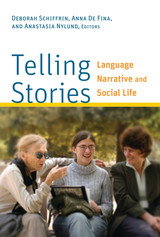
Engaging critical human rights studies from an interdisciplinary arts and humanities perspective, Human Rights on the Move addresses a range of human rights violations in contemporary society, including the carceral systems that prevent movement, the gendered and racial restrictions placed on movement, the lack of access that assures movement only for those who have the ability to move, and the histories of movements such as settler colonialism. The approaches to human rights in this wide-ranging collection are also “on the move,” emphasizing a nimble, cross-disciplinary approach that considers the intersection of politics, culture, and the arts.
Contributing artists, activists, and scholars expose the fundamental paradox of human rights (namely that nation-states are violators and guarantors of rights) while also showing how people facing violence and persecution move with the hope of more livable and equitable futures. The assembled scholarly essays, interviews, and creative pieces demonstrate the importance of a more relational and contextual understanding of human rights—one that can destabilize current definitions and open space for new formulations.
Contributors:
nora chipaumire, Víctor M. Espinosa, Bridget M. Haas, Wendy S. Hesford, Sona Kazemi, Wendy Kozol, Guisela LaTorre, Rachel Lewis, Faustin Linyekula, Paloma Martinez-Cruz, Tiyi M. Morris, Momar K. Ndiaye, Eleanor Paynter, Cristian Pineda, Elaine Richardson, Amy Shuman, Jennifer Suchland, Mary E. Thomas, Shui-yin Sharon Yam


Across the globe, migration has been met with intensifying modes of criminalization and securitization, and claims for political asylum are increasingly met with suspicion. Asylum seekers have become the focus of global debates surrounding humanitarian obligations, on the one hand, and concerns surrounding national security and border control, on the other. In Technologies of Suspicion and the Ethics of Obligation in Political Asylum, contributors provide fine-tuned analyses of political asylum systems and the adjudication of asylum claims across a range of sociocultural and geopolitical contexts.
The contributors to this timely volume, drawing on a variety of theoretical perspectives, offer critical insights into the processes by which tensions between humanitarianism and security are negotiated at the local level, often with negative consequences for asylum seekers. By investigating how a politics of suspicion within asylum systems is enacted in everyday practices and interactions, the authors illustrate how asylum seekers are often produced as suspicious subjects by the very systems to which they appeal for protection.
Contributors: Ilil Benjamin, Carol Bohmer, Nadia El-Shaarawi, Bridget M. Haas, John Beard Haviland, Marco Jacquemet, Benjamin N. Lawrance, Rachel Lewis, Sara McKinnon, Amy Shuman, Charles Watters

Narratives are fundamental to our lives: we dream, plan, complain, endorse, entertain, teach, learn, and reminisce through telling stories. They provide hopes, enhance or mitigate disappointments, challenge or support moral order and test out theories of the world at both personal and communal levels. It is because of this deep embedding of narrative in everyday life that its study has become a wide research field including disciplines as diverse as linguistics, literary theory, folklore, clinical psychology, cognitive and developmental psychology, anthropology, sociology, and history.
In Telling Stories leading scholars illustrate how narratives build bridges among language, identity, interaction, society, and culture; and they investigate various settings such as therapeutic and medical encounters, educational environments, politics, media, marketing, and public relations. They analyze a variety of topics from the narrative construction of self and identity to the telling of stories in different media and the roles that small and big life stories play in everyday social interactions and institutions. These new reflections on the theory and analysis of narrative offer the latest tools to researchers in the fields of discourse analysis and sociolinguistics.
READERS
Browse our collection.
PUBLISHERS
See BiblioVault's publisher services.
STUDENT SERVICES
Files for college accessibility offices.
UChicago Accessibility Resources
home | accessibility | search | about | contact us
BiblioVault ® 2001 - 2024
The University of Chicago Press









